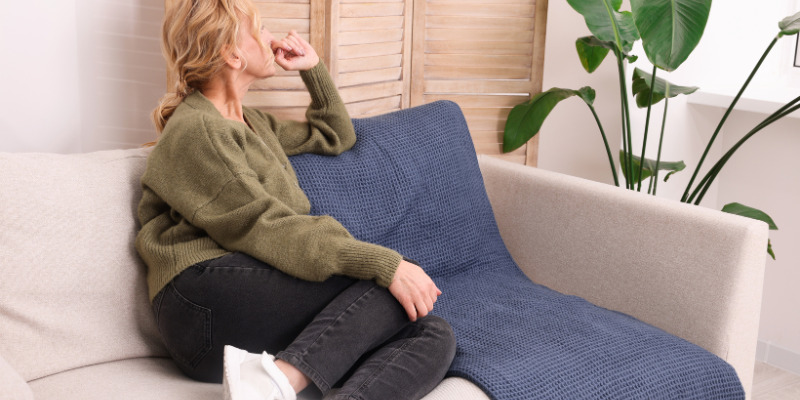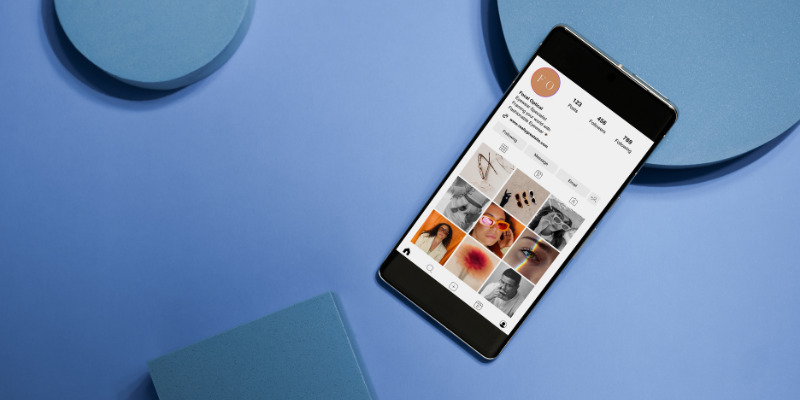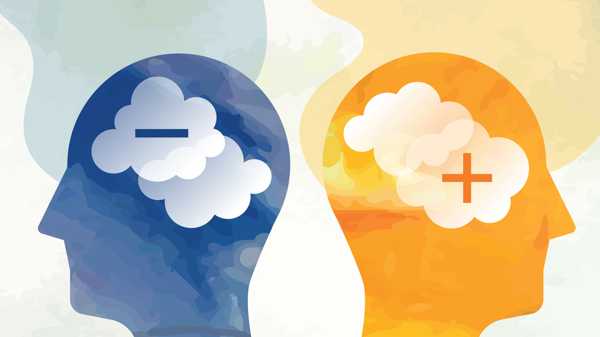How Social Media Affects Our Mental Health?
Social media has become an essential part of our lives. Most people are on social media, which brings people close to each other. Interaction with friends and family has become easy. Social media not only benefits us, but it can also cause significant mental health problems. In addition, bullying is causing significant mental health problems. Different social media platforms contribute differently to mental health problems. This article will delve into mental health concerns related to social media.

Relationship Between Mental Health And Social Media
Although social media helps you explore the world, it can also make your mood fresh in less time. You can explore the world in just a few minutes. You may talk to your friends and family, no matter how far away they are. But the unseen impact is the damage taking place in our bodies.
Several research papers and studies have disclosed mental health issues because of the overuse of social media. People who use social media more frequently are more likely to suffer from different mental health problems. It includes anxiety, depression, and psychological distress. Moreover, this interaction is notably associated with adolescents compared to younger children.
Alarming Signs Of Mental Health
As we know, social media has become a fundamental part of daily life. It is expected to devote considerable time to using Facebook, Twitter, TikTok, and Instagram. However, according to a study, using social media for a short time causes depression and loneliness, and people can't quit these apps.
These are alarming signs that may lead to serious health issues:
Affective increase in depression, loneliness, and anxiety
Allocating additional period to social media than family and friends
Self-assessment relative to others and frequently feeling jealous
Neglecting health and self-care (including peaceful sleep, exercise, and meditation)
Adverse Effects Of Social Media On Mental Health
Excessive exposure to screens can cause adverse effects on mental health. It may offer connections and information about things that cause Stress and tension. Read further to uncover the mental health issues resulting from disproportionate usage of social media.
Irregular Sleeping Schedule
Extended screen time causes irregular sleeping patterns. Blue light from the screen is hazardous to the eyes and delays sleep onset. It impacts your overall health and automatically your daily routine. On the other hand, constant notification may disrupt sleeping and cause anxiety and disturbance.
Effect On Productivity
Too much involvement in social media may distract your focus and impair intellectual functioning. Decreased working flexibility will increase Stress and depression. It will also severely affect cognitive performance and reduce task completion rates, diminishing a person's decision-making skills.
Social Media Can Cause Depression
Different social media platforms can contribute to disagreement when a person posts something about his life on social media. People begin to comment and react to his post. These comments can be positive and negative. Negative comments lead to overthinking, which triggers the depression of a person. A survey was carried out among adults in the USA, which proved that adults who use social media more than three hours per day are more likely to go into depression than occasional social media users.
Low Self-Esteem
Many social media platforms are causing low self-esteem problems. Seeing influencers and celebrities hanging out continuously and enjoying their life can cause low self-esteem and insecurity among average-income people. Non-stop edited picture posting on social media causes unattainable beauty expectations. If a person posts their picture on social media and cannot get enough likes or views, their self-esteem hurts a lot.
Fear Of Missing Out
FOMO, or fear of missing out, is another significant mental health concern related to social media. When a person sitting in his home watches the posts of others hanging out and enjoying picnics, he feels he is missing something better. He begins to think that others are enjoying their lives and that I am living a life of misery. FOMO sometimes makes a person addicted to mobile and social media.
Impulse Control Issues
Continuously using social media causes impulse control issues. When someone has easy access to the internet, he wastes his time on social media apps. This, in turn, causes problems in sleep patterns. It also affects the focus and concentration of a person continuously using social media. Constant notifications can cause difficulty in impulse control, and people react and respond on social media without knowing the consequences.
Feelings Of Loathing
Edited pictures of celebrities and influencers can cause ordinary people to feel self-loathing. They may think they are not charming and beautiful and hate themselves because they do not meet social media standards. Sometimes, these feelings can lead to severe mental health problems.
Cyber Harassment
Social media also serves as a site of crime and harassment. Victims of the harassment experience severe trauma and depression. Digital channels spread this kind of news rapidly, leading to suicidal behaviour in victims.

Safe Utilization Of Social Media
It is necessary to limit screen time to protect mental health, physical health, and emotional well-being. It would help if you decreased the impact of social media on your mental health.
Best practices to decrease screen time include:
Design time parameters on social media apps with the help of phone settings
Schedule allocated time for social media usage
Examine your friends and followers list that may potentially contribute to increasing your Stress and tension
Discover Mental Satisfaction In Outside World
Do you want to eliminate the addiction to social media and need a solution? Here are some guidelines for you.
Make your family and friends a top priority and spend your spare with them.
Conduct an assessment and evaluate your hobbies, such as painting, gardening, swimming, reading, or picnicking with friends and family.
If you're a pet lover, you should devote your time to it.
Do crafting and make handmade items if you are interested.
Practice yoga and meditation to seek peace.
Play music or take dance classes.
These activities not only reduce your screen time but also keep you healthy.
Consult A Doctor
If your partner, family member, or friend is suffering from this mental health trauma, contact your primary care provider. It is immediate to consult a doctor if a person is feeling hopeless, having suicidal thoughts, or harming themselves. Severe anxiety and panic attacks could also be so dangerous. If a person suffers from restless sleep, you must seek medical advice.
Finding Balance In A Digitally Connected World
Social media has become an essential part of our lives. The majority of People are on social media. Social Media brings people close to each other. Interaction with friends and family has become easy. Social media not only benefits us, but it can also cause significant mental health problems. In addition, bullying is causing significant mental health problems. Different social media platforms contribute differently to mental health problems. However, we can find our mental and emotional wellness through offline activities and real-world connections.





